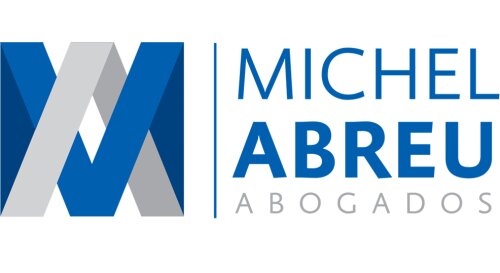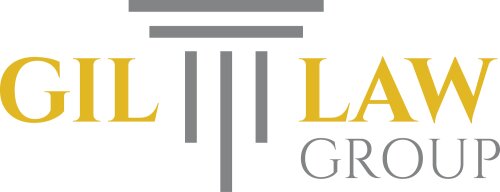Best Accounting & Auditing Lawyers in Punta Cana
Share your needs with us, get contacted by law firms.
Free. Takes 2 min.
List of the best lawyers in Punta Cana, Dominican Republic
About Accounting & Auditing Law in Punta Cana, Dominican Republic
Punta Cana, a popular tourist destination in the Dominican Republic, is subject to the country's accounting and auditing laws, which are designed to ensure transparency and accuracy in financial reporting. The Dominican Republic follows International Financial Reporting Standards (IFRS) for its accounting practices. The financial environment in Punta Cana, marked by its tourism-driven economy, requires businesses to adhere to specific accounting rules to maintain compliance and foster trust. Auditing in the Dominican Republic serves to ensure that financial records are accurate and comply with established standards.
Why You May Need a Lawyer
Engaging a lawyer with expertise in accounting and auditing can be crucial for several reasons:
- Business Formation: Navigating the legal requirements for setting up a business, including registration and compliance with local accounting laws.
- Tax Compliance: Understanding and adhering to taxation laws to avoid penalties or legal issues.
- Dispute Resolution: Addressing any disputes arising from audit findings or financial discrepancies.
- Financial Misconduct: Defending against or addressing allegations of financial misconduct or fraud.
- Acquisitions and Mergers: Ensuring that due diligence and audits are correctly handled during corporate transactions.
Local Laws Overview
The accounting and auditing landscape in the Dominican Republic is governed by several key laws and regulations:
- Code of Commerce: Establishes the legal framework for commercial practices, including accounting record requirements.
- General Accounting Plan: Provides guidelines on the preparation and presentation of financial statements.
- Tax Code: Governs tax obligations and reporting for individuals and businesses, including specific provisions for tourism-related activities prevalent in Punta Cana.
- Financial and Monetary Law: Manages financial institutions, ensuring the integrity and transparency of financial reporting.
- Corporate Governance Code: Emphasizes ethical practices and compliance in auditing processes.
Frequently Asked Questions
What are International Financial Reporting Standards (IFRS)?
IFRS are accounting standards developed by the International Accounting Standards Board, designed to create a common global language for business affairs so that company accounts are understandable and comparable across international boundaries.
Is auditing mandatory for all businesses in Punta Cana?
Auditing is generally required for publicly traded companies and certain large private entities to ensure financial transparency and accountability, especially in the tourism sector.
How often do tax laws change in the Dominican Republic?
Tax laws can change frequently based on fiscal policies. It is important to stay updated and consult with legal advisors to remain compliant.
Can foreigners own businesses in Punta Cana?
Yes, foreigners can own businesses in Punta Cana, but they need to comply with specific legal and financial requirements, including obtaining the necessary business visas and permits.
What penalties can businesses face for non-compliance with accounting laws?
Penalties may include fines, legal sanctions, or restrictions on operations, depending on the severity and nature of the non-compliance.
How can I find a reputable accounting firm in Punta Cana?
Seeking recommendations from local business associations or consulting the registry of certified public accountants can help identify reputable firms.
What is the role of a statutory auditor?
A statutory auditor is responsible for examining financial statements of organizations to ensure they are accurate and comply with relevant legislation.
Are there specific accounting software recommended in the Dominican Republic?
While international software like QuickBooks and SAP is used, local solutions may be available that cater specifically to Dominican regulations.
Do accounting records need to be maintained in Spanish?
While official filings should be in Spanish, businesses often maintain internal records in both English and Spanish for practical purposes.
How long should financial records be retained in Punta Cana?
Typically, financial records should be retained for at least ten years, but specific circumstances may require longer retention periods.
Additional Resources
For further assistance, consider contacting the following resources:
- Instituto de Contadores Públicos Autorizados de la República Dominicana (ICPARD): The national institute of certified public accountants, offering guidance and resources.
- The Chamber of Commerce and Production of La Altagracia: A regional organization supporting business operations, including legal and financial compliance.
- The General Directorate of Internal Revenue (DGII): The national tax authority, providing resources related to tax laws and obligations.
Next Steps
If you require legal assistance in accounting and auditing in Punta Cana, consider the following steps:
- Identify Your Needs: Determine the specific areas where you need legal advice, whether for compliance, tax issues, or dispute resolution.
- Research Legal Professionals: Look for attorneys or law firms specializing in accounting and auditing law, with a track record of success in Punta Cana.
- Schedule Consultations: Engage with multiple advisors to discuss your situation and gauge who best understands your needs and offers a practical approach.
- Prepare Documentation: Gather all relevant financial records and documents in preparation for your consultation to facilitate a comprehensive review.
- Stay Informed: Keep updated on local accounting laws and practices to ensure ongoing compliance and informed decision-making.
Lawzana helps you find the best lawyers and law firms in Punta Cana through a curated and pre-screened list of qualified legal professionals. Our platform offers rankings and detailed profiles of attorneys and law firms, allowing you to compare based on practice areas, including Accounting & Auditing, experience, and client feedback.
Each profile includes a description of the firm's areas of practice, client reviews, team members and partners, year of establishment, spoken languages, office locations, contact information, social media presence, and any published articles or resources. Most firms on our platform speak English and are experienced in both local and international legal matters.
Get a quote from top-rated law firms in Punta Cana, Dominican Republic — quickly, securely, and without unnecessary hassle.
Disclaimer:
The information provided on this page is for general informational purposes only and does not constitute legal advice. While we strive to ensure the accuracy and relevance of the content, legal information may change over time, and interpretations of the law can vary. You should always consult with a qualified legal professional for advice specific to your situation.
We disclaim all liability for actions taken or not taken based on the content of this page. If you believe any information is incorrect or outdated, please contact us, and we will review and update it where appropriate.









